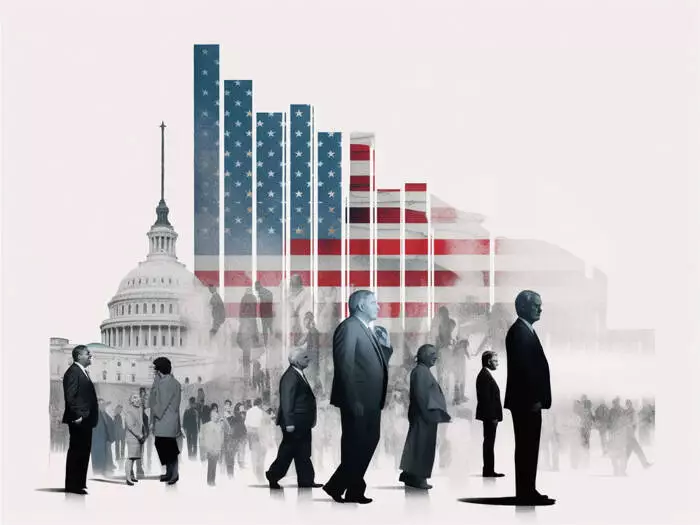The burgeoning world of political betting has encountered significant scrutiny lately. An incident in which a single French trader made substantial bets on Donald Trump’s contracts across multiple Polymarket accounts has raised serious questions about the integrity and reliability of this nascent marketplace. Even in the absence of any proven misconduct, the episode underscores the inherent weaknesses that exist within prediction markets characterized by low trading volume and scant regulatory oversight. These vulnerabilities not only undermine investor confidence but also pose risks of market manipulation, leading to calls for more robust guidelines and monitoring to foster legitimate trading environments.
Adding to the uncertainty in the political betting sphere, renowned investor Paul Tudor Jones has offered a grave assessment of the broader economic landscape, particularly in light of the alarming U.S. budget deficit projected to reach $1.8 trillion in 2024. Jones’s analysis delves deeper than the potential outcomes of an election; he perceives a fundamental threat to economic stability potentially resulting from a bond market crisis, which could precipitate a steep rise in interest rates. The focus on fiscal irresponsibility highlights the insufficiency of both leading candidates’ fiscal strategies in adequately addressing looming financial challenges.
Jones’s cautionary reference to a possible ‘Minsky moment’—a sudden downfall in market conditions triggered by unsustainable fiscal practices—injects an urgent tone into the discourse surrounding the upcoming elections. His strategic decision to reduce bond holdings indicates an anticipation of increased volatility as the markets react to the grim realities of the nation’s fiscal path. Investors must recognize that the post-election climate might necessitate unpopular policy choices, such as retracting tax cuts initiated during the Trump administration or imposing sweeping budgetary cuts, thereby complicating the decision-making landscape.
As platforms like Robinhood launch their election contracts, the market finds itself at a crossroads, blending political speculation with broader economic realities. The excitement surrounding political betting can obscure the critical financial headwinds that loom on the horizon. Investors will have to weigh the thrill of wagering on political outcomes against the weighty fiscal pressures that have the potential to dictate market movements far beyond the electoral decisions at hand.
The intricate relationship between political betting markets and pressing economic concerns offers valuable insights into the current state of the United States—a period where political maneuvering and economic imperatives are entangled in an unprecedented manner. To navigate this evolving landscape, investors must be astute, recognizing that the outcome of electoral contests could lead to economic complexities that traditional political resolutions might not adequately address. In this unpredictable and evolving environment, the intersection of speculative activity and systemic financial risks underscores the need for a nuanced understanding of both sectors.

